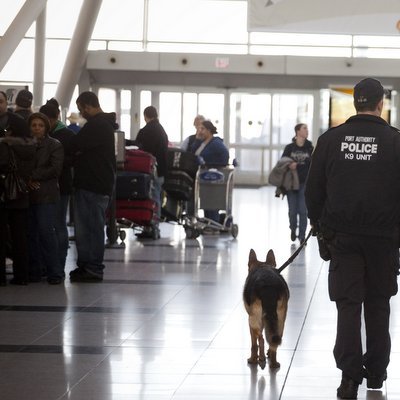Understanding Travel Cover A Little Better
Richard Batka | CEO | The Wise Traveller
 We’ve all been there. A trip, meticulously planned out to the last detail, gets de-railed by loss of luggage, delays, travel interruptions, cancellations, medical emergencies, injury or heaven forbid death during the trip. It’s like the unpredictability of natural disasters. You just can’t plan for all the “what if’s” that might plague your trip bringing you to making a claim on that all important travel insurance you bought. So we start our new Wise Traveller Insights newsletter with some insights to travel insurance policy wording, what it means for you, your trip coverage and your claim experience. Despite all the internet information available to travellers, policy holders, new or regular may be unaware of the little details within their particular travel insurance policy and how it impacts them. The biggest misconception is that a travel insurance policy should or does cover everything and every situation. They don’t! And no two policies are the same.
We’ve all been there. A trip, meticulously planned out to the last detail, gets de-railed by loss of luggage, delays, travel interruptions, cancellations, medical emergencies, injury or heaven forbid death during the trip. It’s like the unpredictability of natural disasters. You just can’t plan for all the “what if’s” that might plague your trip bringing you to making a claim on that all important travel insurance you bought. So we start our new Wise Traveller Insights newsletter with some insights to travel insurance policy wording, what it means for you, your trip coverage and your claim experience. Despite all the internet information available to travellers, policy holders, new or regular may be unaware of the little details within their particular travel insurance policy and how it impacts them. The biggest misconception is that a travel insurance policy should or does cover everything and every situation. They don’t! And no two policies are the same.
Without going into the broader complexities of the insurance industry, insurance companies do price policies in order to manage between the money that goes out in payment of claims and operational costs of providing the cover you receive. But did you know this? Part of what you’re paying for is for insurance companies to be able to qualify claims and catch the fraudulent claims to keep the cost you pay as low possible while still providing value.
Coverage costs, for the most part, are calculated on different situations which may befall the traveller, plus the amount of the damage, or calamity which occurred during the trip and the conditions associated with any particular situation. Then there is the list of exclusions—the things that are not covered which is included to manage certain scenarios. You should always read that section carefully.
 Most of us aren’t happy when we have a claim denied. But, a high portion of claims that are denied are denied for one of two reasons (of course not the only two), and these are partially in the control of the individual. The first reason is because the individual did not understand or know the policy details and is claiming for something they think should be covered, when in fact it is not. The second being that the claim lacks sufficient documentation and information to verify the claim. Documentary support is key to a smooth claim assessment, whether it's a medical expense, or the loss of personal property.
Most of us aren’t happy when we have a claim denied. But, a high portion of claims that are denied are denied for one of two reasons (of course not the only two), and these are partially in the control of the individual. The first reason is because the individual did not understand or know the policy details and is claiming for something they think should be covered, when in fact it is not. The second being that the claim lacks sufficient documentation and information to verify the claim. Documentary support is key to a smooth claim assessment, whether it's a medical expense, or the loss of personal property.
Imagine if everyone could simply get a claim paid for that lost or damaged designer handbag? Travel insurance costs for cover would escalate so quickly. Most of us are honest and we can't understand why the insurer would not simply just accept our word on face value, but the reality is not everyone is like you and I. There is a widely held story that there have been more claims for lost Rolex Oyster watches than actual watches made.
If you don’t keep receipts for your high priced belongings some insurers may consider the submission of credit card statements or even candid photos containing the item as proof of ownership and or value.
Bringing us to the expectations of what emergency assistance service provides, although it may be expected, this does not necessarily mean instant claim approval simply because we call the hotline. The same expectations should be held that insurers will usually require some detail and confirmation of the situation upon which they will provide guidance on a course of action. If attending a hospital this may mean confirmation from a doctor on the ailment as some medical conditions may not be covered.
As human beings, we assess the situation from our own perspective. Some of us are willing to understanding the context of the small compromises that are necessary to ensure travel insurance remains affordable. Unfortunately there are those that actively seek to abuse or even defraud making it just that little more difficult and expensive for the rest of us. Insurers may appear hard to deal with or seem frustratingly process driven but understanding that this is mostly a response to the increasing instances of exaggerated or fraudulent claims and is not personal to you will help manage the stress levels.
Knowing what you are covered for, keeping or obtaining proper documentation and being prepared as best you can for the unexpected derailments will help to make things go smoothly. When in doubt don’t hesitate to ask, you’ll be surprised at how willing most organisations are to help you understand how things work and where you stand.















